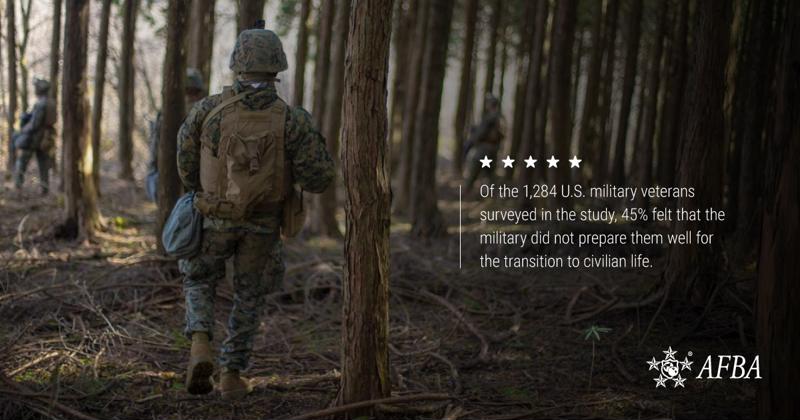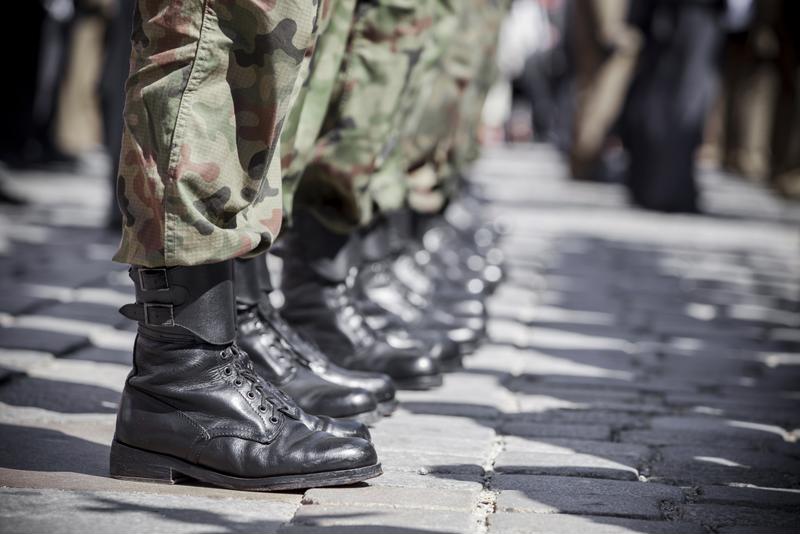One in five veterans living today served on active duty following the 9/11 attacks. New data from the Pew Research Center demonstrates how their experiences differ from earlier generations of armed servicemembers.
"The American Veteran Experience and the Post-9/11 Generation" summarizes the results of a 2019 Pew survey. Respondents included nearly 800 veterans whose military service was completed before the attacks on Sept. 11, 2001 and nearly 500 vets who began serving afterward.
Among the key findings is the fact that younger veterans struggle more during the transition from active duty to civilian life.

The transition from active duty to civilian life
Of the 1,284 U.S. military veterans surveyed in the study, 45% felt that the military did not prepare them well for the transition to civilian life.
However, nearly half of post-9/11 veterans reported that the transition to civilian life was challenging, with 16% describing it as very difficult and a third describing it as somewhat difficult.
This stands in contrast to the relatively smooth transition experienced by pre-9/11 veterans: 78% considered the transition somewhat or very easy. Only 4% described it as being very difficult.
Civilian work-life challenges
In the first months and years following reentry into civilian life, veterans struggled with:
- Paying bills.
- Finding employment.
- Obtaining medical care.
- Alcohol or substance abuse.
- Emotional distance from friends and family.
- A lack of structure in civilian life.
The study found that about two in five post-9/11 veterans believed they were overqualified for their first post-military civilian job, although the majority stayed for at least one year. However, more than two-thirds reported that their deployment had a positive financial impact compared to the majority of pre-9/11 vets who felt it had no impact.
The older generation was more likely to feel pride in their service and optimism about their future, while the younger generation was more likely to find government assistance levels inadequate.
Mental and emotional health consequences
The post-9/11 generation was more likely to have experienced emotionally distressing or traumatic experiences and post-traumatic stress as a result of deployment.
The Pew study concluded that post-9/11 combat veterans, in particular, were the most likely to have experienced emotional trauma and were, therefore, more likely to struggle generally. The research revealed that 57% of all combat veterans had witnessed someone they served alongside be killed or seriously injured.
Because twice as many veterans saw combat in the post-9/11 era, twice as many came away with the emotional scars of those experiences. Of post-9/11 veterans, 42% reported that their service had negative mental health consequences, compared to only 17% of pre-9/11 veterans who felt similarly.
However, the post-9/11 generation was more likely to seek out help for emotional issues (35% compared to just 10% of pre-9/11 veterans).
Higher likelihood of serving in a combat zone
The difference between the experiences cited by both generations, according to Pew researchers, was the greater likelihood of serving in a combat zone. Post-9/11 veterans were far more likely to have experienced at least one deployment and were twice as likely to be combat veterans.
Over three-quarters of post-9/11 vets were deployed at least once, with 10% having been deployed eight or more times. Additionally, about half of post-9/11 vets experienced combat; less than a quarter of pre-9/11 vets did.
And yet, despite experiencing a more difficult transition from active duty to civilian life, roughly four in five post-9/11 veterans said that they would still encourage a young person to enlist.
The complete results of the study are available on the Pew Research Center's website.

